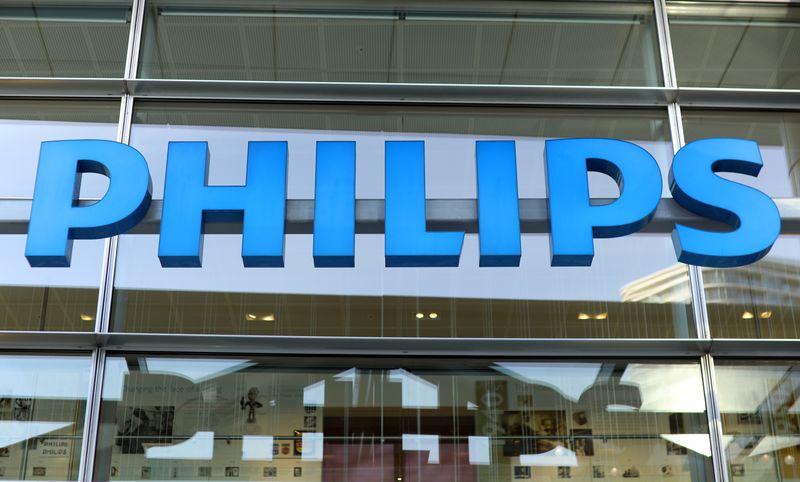By Diana Mandia
(Reuters) -Health technology group Philips posted a fourth straight drop in order intake on Monday and warned that it expects global market conditions to remain highly uncertain, sending its shares down 5% from a recent 12-month high.
The Amsterdam-based group, a former industrial conglomerate that now focuses on medical technology, said order intake had decreased 8% in the April-June period, the fourth quarterly fall in a row.
The maker of electric toothbrushes and CT scanners said it had a "particular concern" on the development of relationships between the United States, China and the European Union, as well as China's drive to become self-sufficient in critical technologies, including in health-related areas.
Chief Executive Roy Jakobs, who recently met company and government officials in China, said however current demand in the country was robust.
The group reported a 15% sales increase in its so-called "growth geographies region" for the quarter and said China, the Middle East, Turkey and Latin America had strongly contributed to this rise.
Philips generates 15% of group sales in the People's Republic.
New licensing requirements for its healthcare products in Russia were responsible for half the quarterly order decline, Jakobs said.
Philips still delivers hospital equipment such as large medical scanners to Russia despite Western sanctions following the country's war on Ukraine, but no personal healthcare products.
The group is confident of seeing orders increase in the second half, boosted by strong demand for its diagnostic imaging and ultrasound devices, and its data analyses tools, finance chief Abhijit Bhattacharya told an investor call.
The group slightly updated its full-year targets and now expects comparable sales growth of "mid-single digits" versus previous guidance of low-single-digit growth.
The adjusted EBITA margin is now seen at the upper end of the previously forecast "high single-digit" range.
Analysts at ING, who maintained their "hold" rating on the stock, said the new guidance was not too challenging given the strong first-half figures.

The Amsterdam-listed shares, which rose as high as 20.845 euros earlier this week, their highest since July 2022, fell as much as 7.7% and traded 5.6% lower at 19.67 euros by 1103 GMT.
($1 = 0.8992 euros)